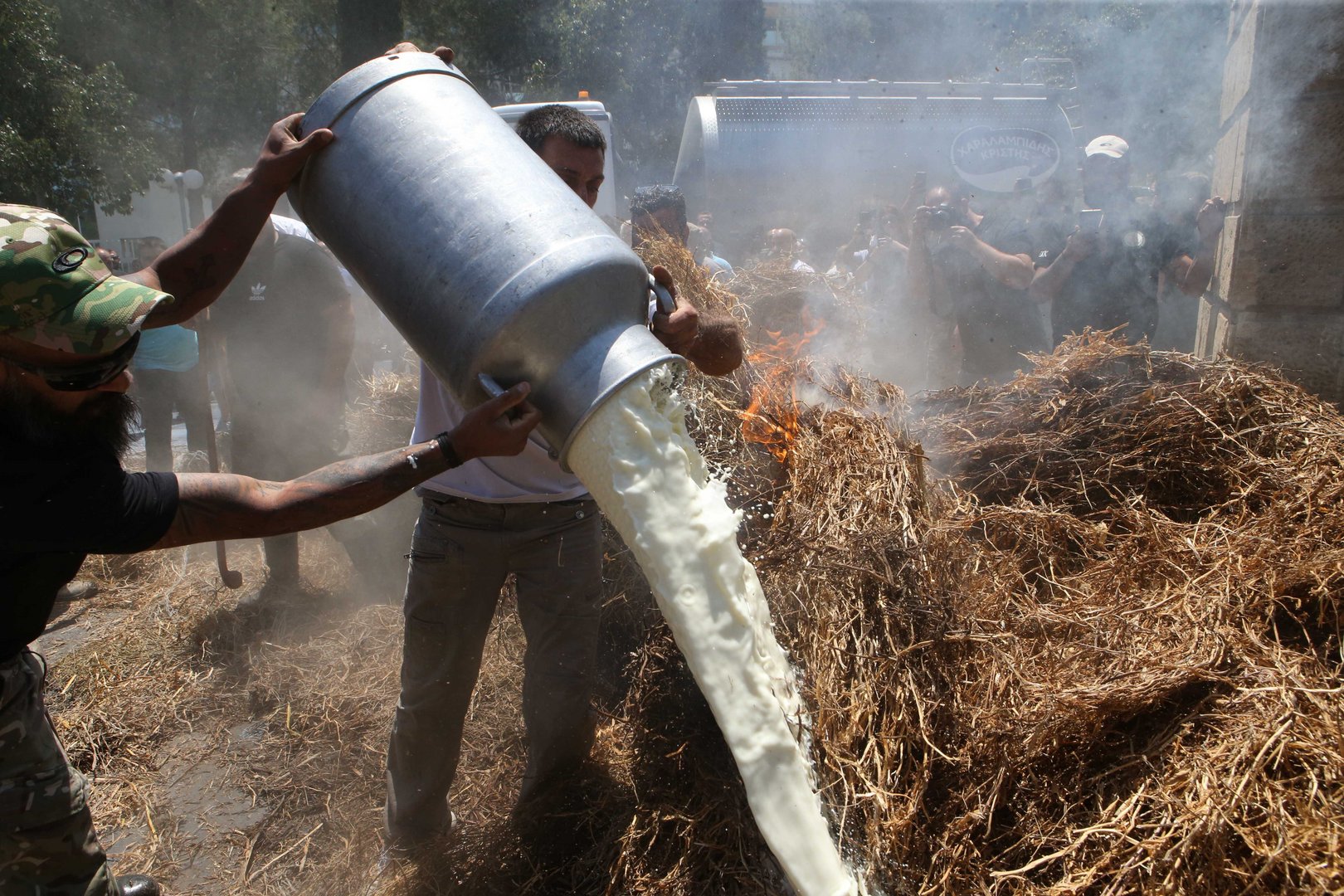In the latest twist to the ongoing halloumi saga, the House agriculture committee on Tuesday decided to invite Agriculture Minister Costas Kadis to their next meeting to shed light on a rumbling dispute on whether authorities are carrying out adequate checks on the use of milk powder to make the traditional cheese.
Goat and sheep farmers have suggested that halloumi manufacturers are using more powder than set out in specifications under which the cheese acquired the much-trumpeted PDO (protected designation of origin) status because it is cheaper than buying milk from them.
The cheesemakers have angrily rejected the insinuation as unfounded and slanderous and demanded proof. But they have also argued that the current specifications that set out how much of the milk should be from goats or sheep – which is the traditional way of making halloumi – and how much from cows, should be changed.
Against this background, and amid a surge in costs to maintain their herds, goat and sheep farmers have protested angrily outside the presidential palace demanding implementation of the PDO formula.
The issue spilled over into the House agriculture committee on Tuesday after five MPs, including committee president Yiannakis Gavriel of Akel, tabled it for discussion.
He told reporters after the meeting that the fact that halloumi production exceeded available milk quantities pointed to long-standing illegalities. Checks carried out in the past had been inadequate. Ministries have since been obliged to reveal that there were problems with the chemical method used to carry out the checks, effectively rendering them toothless, he claimed.
Even though the government was aware that the state lab had this issue, it had done nothing to develop a new method to carry out checks, he added.
As a result, ‘economic interests’ had been able to continue to act illegally, at the cost of the use of milk to make halloumi. He called on the government to launch very strict checks regarding the quotas of milk used to develop new methods to detect milk powder.
Disy MP Charalambos Pazaros said that authorities had in recent days carried out concerted checks. Should these find ingredients that are not permitted or changes in the quality or the specifications of Cyprus’ dairy products, then action will be taken.
And he said it was important that both the commerce and agriculture ministers have given the green light for the state lab to explore new methods to detect milk powder.
Diko MP Christos Orphanides said the government departments had been misleading the committee and the public with assurances that checks regarding milk powder were carried out regularly, only to hear last week that authorities cannot carry out these checks.
The state lab is understood to have equipment which can detect milk powder above 3 per cent.







Click here to change your cookie preferences